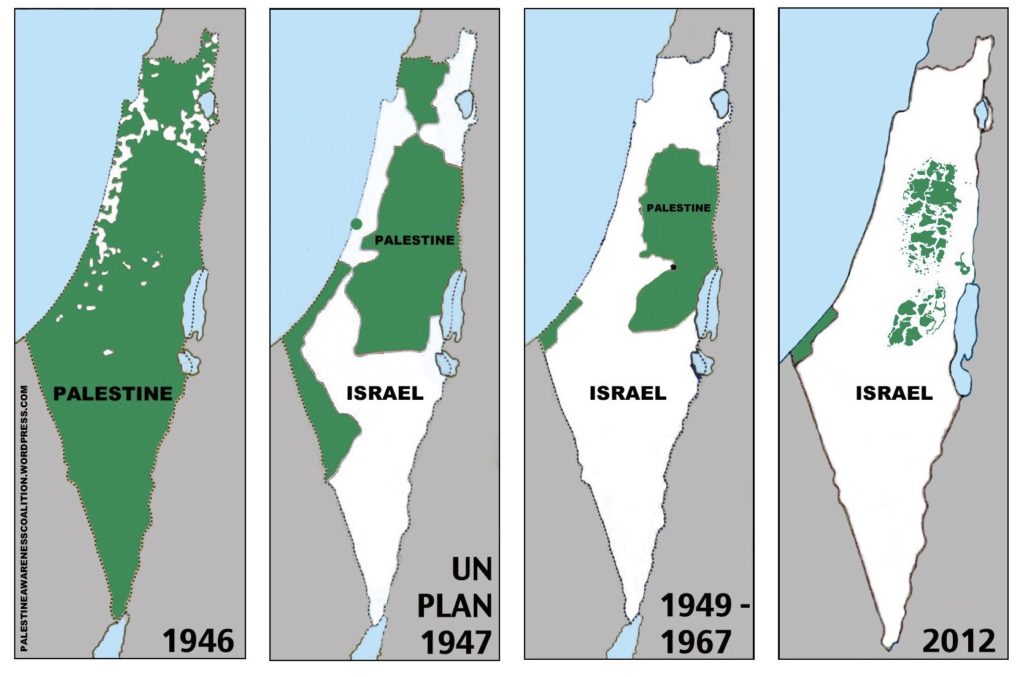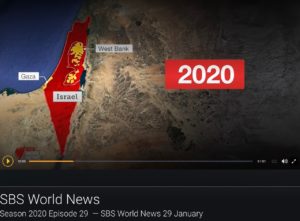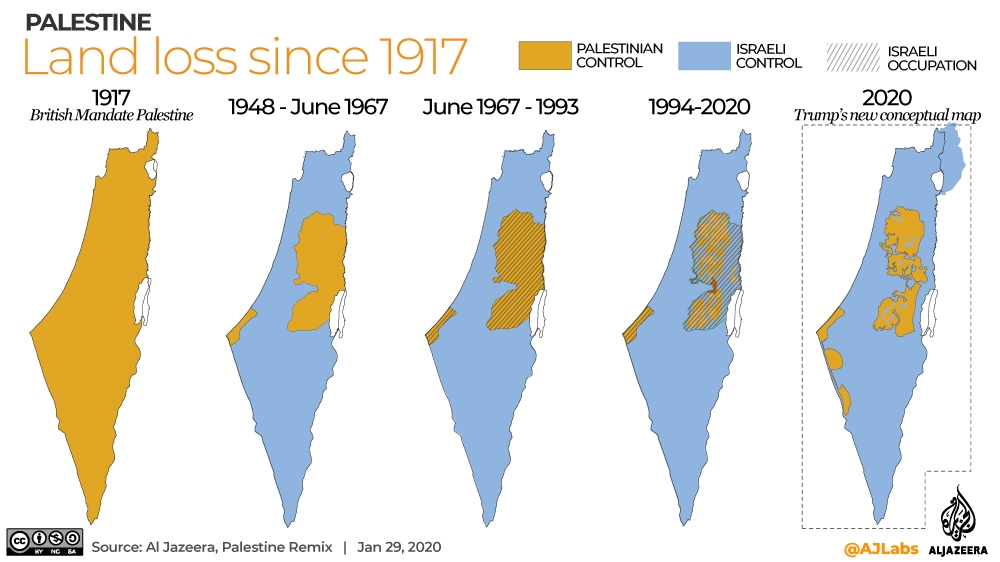
Sorry it took me so long to get this out. I started it months ago. My house has been under attack. Pray for me and my son. The devil does not like the truth getting out.
Everyone now is talking about the ENDTIMES. People are beginning to recognize the signs all around us. God told us to watch the FIG TREE, which is Israel. People doubted that there would ever be a Jewish State again, and they certainly still doubt that there will ever be a Third Temple. But, EVERYTHING is going according to GOD’s plan. Whatever HE says will be, will be. Time is running out. Keep your eyes up because your redemption draws nigh. But, also keep a watch on what is happening in Israel.
Were you aware that this year 2023, Israel celebrates its 75th year? You know the bible says in Psalm 90:
10 The days of our years are threescore years and ten (70); and if by reason of strength they be fourscore years (80), yet is their strength labour and sorrow; for it is soon cut off, and we fly away.
11 Who knoweth the power of thine anger? even according to thy fear, so is thy wrath.
12 So teach us to number our days, that we may apply our hearts unto wisdom.
13 Return, O Lord, how long? and let it repent thee concerning thy servants.
spacer

If there is one thing that characterizes American-Israeli relations more than any other it is US military aid to Israel, which currently amounts to nearly $4 billion dollars a year. Few things in Washington have seemed more guaranteed than this US aid, as well as congressional approval for it. This support has been so sacrosanct that any critical conversation around it has long been considered taboo. In the last several weeks, however, no less than two dozen articles have been authored, from various perspectives and political leanings, arguing over the utility of US Military aid to Israel, or rather the lack thereof. This likely foreshadows a coming change in policy and, at minimum, indicates that the taboo around discussing this facet of the US-Israel relationship may now be dead.
US Military Aid to Israel: What It Is and How It Works
US Military aid to Israel, or more precisely US military financing for Israel, functions through the United States’ Foreign Military Financing (FMF) program. Israel is the single largest recipient of US military financing through this program, at $3.8 billion a year. Egypt comes in second at $1.3 billion. Together they make up the majority of the nearly $10 billion annually allotted for this purpose. Egypt’s military financing itself was a product of negotiations to bring the country under American influence as part of the Camp David Accords in the late 1970s. The peace accords, sealed with financing for the Egyptian military and economy, brought an end to hostilities and recognition of Israel by Egypt. In other words, the majority of the FMF program serves Israeli interests.
Over the last several decades, different memorandums of understanding (MoU) between Israel and the United States have been negotiated to set expectations around military aid over time. The long-term aid provides a framework for congressional approval on an annual basis while affording military budget planners in Israel longer-term clarity around which to plan. The last MoU was agreed to in 2016 by the Obama administration and covers fiscal years 2019 through 2028, amounting to $38 billion in military aid ($3.8 billion per year) over a ten-year period. The agreement succeeded the previous MoU, signed in 2007 by the George W. Bush administration and totaling $30 billion. The United States has separately approved funding for Israel’s Iron Dome missile system, in addition to the yearly allocation of military aid.
Over the years, US foreign aid for Israel has evolved, not just growing in amount but also evolving in structure. Historically, elements of the package have been added, removed, increased, or decreased over time for various reasons. For example, one mainstay of US foreign aid to Israel over the decades was economic assistance aimed at supporting a struggling Israeli economy. This assistance lasted from 1971 until being phased out in 2007 as the Israel economy grew stronger over time. An important factor in Israel’s economic growth over this period was the evolution of its tech sector, which itself was boosted by its military industries. In this too, US assistance played a key role.
Israel received an exemption allowing it to spend a portion of its annual FMF allotment in its own domestic arms industry.
Although according to US law FMF dollars are supposed to be spent to purchase defense articles from US manufacturers, Israel received an exemption from this rule that allowed it to spend a portion of its annual FMF allotment in its own domestic arms industry. This exception, which began in the late 1980s, saw Israel injecting some 26 percent of its US FMF allotment into its own domestic arms industry annually. The impact of this over time was the creation of an Israeli defense industry that not only became strong enough to meet most domestic needs but also became a major player in the global arms market, and in fact the largest per capita arms exporter in the world. As with economic assistance before it, this “offshore procurement” (OSP) element of the FMF package for Israel is being phased out under the current MoU and will go down to zero by the end of the agreement. It is probably no coincidence that as this arrangement winds down, a bigger conversation around US military aid for Israel is beginning to take shape.
A New Conversation
Many have recently questioned the utility and benefits of US military aid to Israel. “Does it really make sense for the United States to provide an enormous sum of $3.8 billion annually to another wealthy country?,” asked Nicholas Kristoff in the New York Times. Right-wingers Liel Liebowitz and Jacob Siegel wrote in Tablet magazine, in a piece that provoked numerous responses: “Cut the stranglehold of aid. Let America pursue its interests. Let Israel, too, follow its own interests, which sometimes align with those of Washington and sometimes don’t.” And Ivan Eland chimed in at the National Interest on the large sum given to Israel, adding, “Ending that largesse is long overdue.”
What is perhaps most notable about the slew of articles making arguments for ending US military financing to Israel is the range of voices writing them. From liberal writers in major mainstream publications to right-wingers in niche Zionist publications, and everyone in between, calls for ending US military aid are being made. Importantly, different voices call for ending aid for different reasons. While progressives have pressed for ending US military aid to Israel over its human rights abuses against Palestinians, others are focusing on the fact that Israel does not need US aid to support its economic growth—and still others argue that US aid to Israel actually hurts Israel strategically.
The death of a longstanding taboo of any sort, let alone one so long held that has seemingly evaporated overnight, begs the question: Why this is happening now? There are a range of factors that likely provide insight into this question.
New MoU Negotiations Are Approaching
While the last MoU between Israel and the United States was announced in 2016, the negotiations around its terms began as early as 2013 before intensifying in the 18 months prior to the agreement. Based on the previous MoU timeline, initial conversations around the parameters of a new MoU may well be starting this year. The discussion around possible changes is already taking place in the media and in policy circles now, and will set the stage for when the next negotiations begin in earnest between Israel and the US.
Offshore Procurement Is Expiring
Another proximate factor likely has to do with the phasing out of the offshore procurement element of the FMF package. The percentage of FMF money that Israel could use in its own domestic military industry has been phased out gradually, and is set to go from about 26 percent of the total to zero over its ten-year period. However, the steepest drops begin in the second half of the term of the MoU, between the years 2024 and 2025 where it drops from about 22 percent to 14 percent in one year. In other words, while the coming end of this perk for Israel has been known for some time, the biggest material impacts on financing for its domestic military industry are only now about to start kicking in.
No “Aid” Is Needed
US Military Aid to Israel was born in a very different geopolitical and economic moment than the one that exists in Israel today. When it was first instituted, Israel was still dealing with Arab nations on its borders who were in states of war with it, including several who were backed by the superpower of the Soviet Union. Today, the Cold War is a historic relic, Israel has peace agreements with Egypt and Jordan (who are both American client states), and Syria and Lebanon are both deterred and debilitated by their own internal crises. Today, more Arab states (the United Arab Emirates, Bahrain, Morocco, and Sudan) have normalized relations with Israel, making its surrounding region less bellicose than ever before. At a time when Israel, with its small population and weak economy, needed to be on a constant war footing against much larger Soviet-backed states, the argument for American aid was far easier to make. Today, Israel has a robust economy with a GDP that is greater than half a trillion dollars, and it is a global arms exporter. In fact, Israel sells arms representing about three times the value of US military aid annually. That is not a country that needs a handout.
The Growing Progressive Drumbeat Against Aid
Over the last decade and a half a Palestinian rights discourse has begun to permeate Democratic Party politics in the United States, pushed forward by progressive activists and lawmakers who have been calling for a shift in US policy toward Israel. In recent years, for the first time legislation was introduced in Congress that would put restrictions on US military aid to Israel over its treatment of child prisoners, and numerous progressive lawmakers have backed the bill or called for similar forms of accountability. As recently as a few weeks ago, Senator Bernie Sanders introduced an amendment to the National Defense Authorization Act that would condition US military aid to Israel. Over time it is likely that these calls will grow given continuous trends in public opinion, especially among Democrats.
Israel’s Political Upheaval
There is little doubt that in addition to all of the above, the tumultuous protests which have rocked Israeli politics over this past year, along with the far-right Israeli government’s attack on the judicial system, have contributed to a broader conversation around reassessing the US-Israel relationship. Supporters of Israel have sold the idea that the US and Israel are like-minded democracies and that those “shared values” are at the center of the relationship. Whatever one thinks of this argument, it becomes harder to sustain when an extremist government attacks the nation’s judicial system over the objections of hundreds of thousands of protesters in the streets.
All these reasons have come together in this moment to make greater space for a conversation around reassessing military aid possible. The next big question is when and how does this conversation translate to policy shifts, and what direction will those shifts take?
Hedging Bets
Even if one ignores Israel’s human rights abuses against Palestinians, as US policymakers too often do, the policy of providing billions of FMF dollars to Israel makes less sense today than ever. Israel does not need the handout, has a robust military industry that the US helped subsidize for years, and is increasingly becoming hard to defend due to its right-wing, theocratic leanings. Historically, US policy has phased out types of assistance to Israel as it no longer was necessary, as with economic aid and offshore procurement. Could the US actually end military aid to Israel in the years to come?
We have yet to see public opinion shifts on Israel create more significant change on the national political level.
As a policy decision this is a no-brainer. Human rights reasons should be first on the list, but even beyond them there are many more. Politically, however, this is another matter. Each president who has announced an MoU around US military aid to Israel has made a point of noting that their aid package was larger than any before, precisely because they understood it to be good politics. US dollars for Israeli war machines is the retail politics that tickles the soul of pro-Israel interest groups in the United States, and the talking points around this have become as routine as shaking hands and kissing babies at the county fair. While public opinion is clearly changing, and while pro-Israel interest groups are clearly shaken by these trends, we have yet to see those shifts create more significant change on the national political level. For any American politician to end military aid to Israel, it would likely have to be sold to the public as a pro-Israel policy step and not as a step to hold Israel accountable for any of its behavior. That will not be an easy task, especially in the politically charged climate of American politics.
Any US administration taking such a step would likely seek to pair it with other steps that would be seen as a clear boost in support to Israel so as not to allow an end to the military aid to be perceived as a blow to the relationship. What that could be is not exactly clear, especially given how much support the US already gives to Israel, but managing the optics of the end of military aid would surely be a major part of the conversation. For now, the big news is that a conversation long thought to be impossible has finally begun.
The views expressed in this publication are the author’s own and do not necessarily reflect the position of Arab Center Washington DC, its staff, or its Board of Directors.
spacer
When Israeli President Isaac Herzog addresses a joint session of the U.S. Congress on Wednesday, there will be some notable absences. At least five progressive U.S. lawmakers, including Reps. Ilhan Omar, Rashida Tlaib, Alexandria Ocasio-Cortez, Jamaal Bowman, and Cori Bush, confirmed that they will be skipping Herzog’s speech in protest of Israel’s policies toward Palestinians in the occupied territories, which some Democrats recently described as “racist” and akin to apartheid.
While these Democrats may be in the minority among their congressional peers, their positions are more mainstream than the D.C. establishment might suggest. Polls this year have shown that the gap between the American public and those elected to represent them is widening when it comes to U.S. policy on the Israeli-Palestinian conflict, particularly among Democrats. This year, for the first time, an annual Gallup survey found that Democrats’ sympathies lie more with Palestinians than Israelis by a margin of 49% to 38%. The survey found that sympathy toward Palestinians among U.S. adults is at a new high of 31%, while the proportion not favoring either side is at a new low of 15%. That’s a remarkable shift from only a decade ago, when sympathy toward Palestinians stood at just 12%. During that same period, sympathy toward Israelis has declined from 64% to 54%.
Americans are also increasingly less likely to describe Israel as a democracy. When asked to describe the way Israel looks in a poll conducted between March and April, only 9% of respondents chose “a vibrant democracy,” a common descriptor for Israel among U.S. officialdom. The rest chose “a flawed democracy” (13%), “a state with restricted minority rights” (7%), and “a state with segregation similar to apartheid” (13%). Some 56% responded with “I don’t know.” Shibley Telhami, a Middle East expert at the University of Maryland who conducted the poll, tells TIME that the percentage of “don’t knows” was surprising. He says that this suggests that those polled “are either uncertain or they’re uncomfortable answering.”
These shifting opinions coincide with a particularly tense period in Israel, which over the past year has been marked by unprecedented and sustained protests against Israeli Prime Minister Benjamin Netanyahu and his right-wing government’s efforts to weaken the judiciary, the sole administrative check on their power. It has also featured an uptick in violence in the occupied Palestinian territories, which have been subject to deadly raids and, in the case of Huwara, what one Israeli general described as a “pogrom” carried out by Israeli settlers. The violence has resulted in the killing of at least 174 Palestinians this year, according to the U.N., putting 2023 on course to become the deadliest for Palestinians on record since the body began recording the number of fatalities in 2005. At least 23 Israelis have been killed in the occupied territories during the same period.
While lawmakers such as Tlaib (the first Palestinian American woman elected to Congress) and Omar have long been critical of Israel’s treatment of Palestinians—they were banned from visiting the country in 2019—disquiet over Israel’s rightward shift has been growing among Democratic lawmakers in recent years, including among traditionally pro-Israel politicians on Capitol Hill. “We have always said that the U.S.-Israel relationship is built on shared interests and on shared values, but clearly we do not share the values of someone like Ben-Gvir,” Sen. Chris Van Hollen, a leading Democratic lawmaker on the Senate Foreign Relations Committee, told Israeli newspaper Haaretz following a recent visit to the country, referencing one of Netanyahu’s far-right coalition partners.
And it’s not just politicians. Noura Erakat, an associate professor at Rutgers University and author of Justice For Some: Law and the Question of Palestine, tells TIME that there has been a “serious shift” across academic associations, the arts, and other social justice movements when it comes to the Israeli-Palestinian conflict. “There is now clear and robust support and understanding of Palestine as a freedom struggle,” she says.
There has also been a notable shift within the American Jewish community, where the subject of Israel has become more polarizing in recent years. A 2021 Pew survey found that while more than half (58%) of American Jews express an attachment toward Israel, markedly fewer approve of its government’s leadership (40%) or its efforts toward achieving peace with the Palestinians (33%).
But this disquiet has yet to manifest itself within Washington—a reality that was best exemplified in recent days by the uproar over comments made by Rep. Pramila Jayapal, the Democratic chair of the Congressional Progressive Caucus, who came under fire for referring to Israel as a “racist state.” Jayapal ultimately walked back her comments—explaining that she doesn’t believe the “idea” of Israel as a nation is racist, but that the discriminatory policies perpetuated by its government are—though not before being denounced by congressional Republicans (some of whom dubbed the remarks “anti-Semitic”) and many of her own Democratic colleagues. A resolution affirming that Israel “is not a racist or apartheid state” was passed by the House of Representatives on Tuesday, with 412 lawmakers in support and 9 against
Nor has this shift been acknowledged within the White House. Despite President Joe Biden’s criticism of Netanyahu’s governing coalition—one composed of ultranationalist and pro-settlement leaders that the President described as “one of the most extremist” he’s seen—his administration has resisted calls to leverage U.S. aid to Israel or to ensure that U.S. funding isn’t used in the military detention of Palestinian children. On Monday, Biden extended an invitation to Netanyahu for a face-to-face meeting in the U.S. after months of delays, though it is as yet unclear if such a meeting would take place in the White House.
U.S. lawmakers are undoubtedly aware of this widening gap. “They would have to have their heads buried in the sand not to see a world changing around them,” says Erakat. But American public opinion doesn’t always dictate U.S. policy, nor is this issue as front of mind as more pressing foreign policy concerns, such as the ongoing war in Ukraine.
“Obviously, policymaking is not just about public opinion,” says Yousef Munayyer, a senior fellow at the Arab Center in Washington, D.C. and an expert on the Israeli-Palestinian conflict. “In the United States in particular, it’s about elections, it’s about interest groups, and it’s also about American geopolitical interests. And all of those things coming together have made it easier for American policymakers to hold on to the old pro-Israel policies than to be responsive to a base that is increasingly calling for change.”
The question is how long that remains sustainable. “This is going to continue to shake the U.S.-Israel relationship,” Munayyer adds. “When exactly that translates into policy change is not something we can tell.”
spacer
Even thought the US Government is not swayed by the changes in public opinion towards the State of Israel, we know that at some point, and likely soon, that will change. We know that our Government will turn against Israel, along with the rest of the world. How do we know? Because the BIBLE TELLS US SO.
spacer
spacer

Zechariah 14:2 in Context
1Behold, the day of the LORD cometh, and thy spoil shall be divided in the midst of thee.
2For I will gather all nations against Jerusalem to battle; and the city shall be taken, and the houses rifled, and the women ravished; and half of the city shall go forth into captivity, and the residue of the people shall not be cut off from the city.
3Then shall the LORD go forth, and fight against those nations, as when he fought in the day of battle. 4And his feet shall stand in that day upon the mount of Olives, which is before Jerusalem on the east, and the mount of Olives shall cleave in the midst thereof toward the east and toward the west, and there shall be a very great valley; and half of the mountain shall remove toward the north, and half of it toward the south. 5And ye shall flee to the valley of the mountains; for the valley of the mountains shall reach unto Azal: yea, ye shall flee, like as ye fled from before the earthquake in the days of Uzziah king of Judah: and the LORD my God shall come, and all the saints with thee.
spacer
It will be the WAR TO END ALL WARS! It is the culmination of all history. The Battle that will bring the closing of TIME as we know it. This earth will pass away and there will be a NEW HEAVEN and a NEW EARTH. IT WILL NOT BE LONG NOW.
Remember, from Apr 26, 2023 to May 14, 2024 it is still the 75th Year of the Israeli Nation.
spacer











